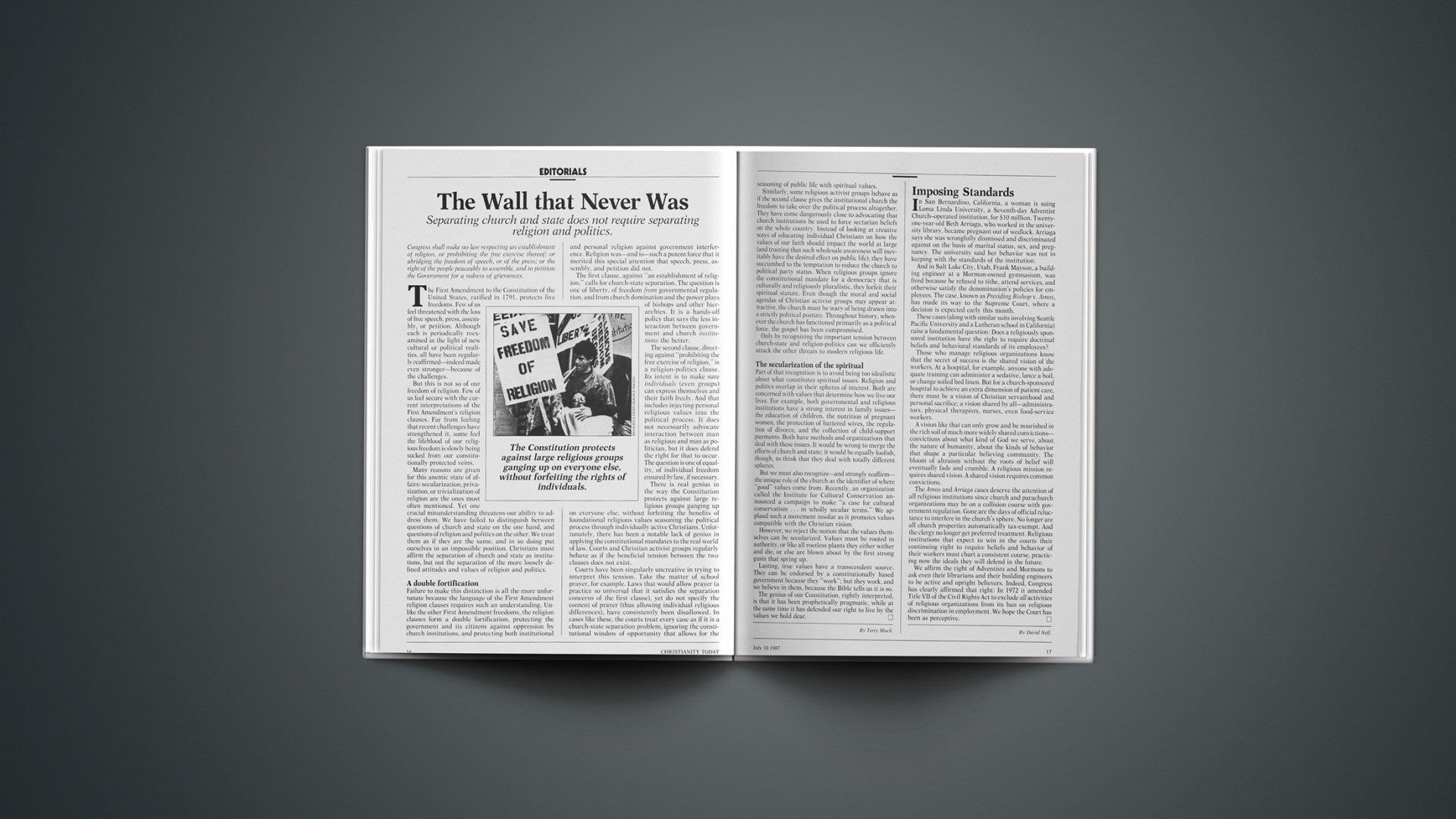In San Bernardino, California, a woman is suing Loma Linda University, a Seventh-day Adventist Church-operated institution, for $10 million. Twenty-one-year-old Beth Arriaga, who worked in the university library, became pregnant out of wedlock. Arriaga says she was wrongfully dismissed and discriminated against on the basis of marital status, sex, and pregnancy. The university said her behavior was not in keeping with the standards of the institution.
And in Salt Lake City, Utah, Frank Mayson, a building engineer at a Mormon-owned gymnasium, was fired because he refused to tithe, attend services, and otherwise satisfy the denomination’s policies for employees. The case, known as Presiding Bishop v. Amos, has made its way to the Supreme Court, where a decision is expected early this month.
These cases (along with similar suits involving Seattle Pacific University and a Lutheran school in California) raise a fundamental question: Does a religiously sponsored institution have the right to require doctrinal beliefs and behavioral standards of its employees?
Those who manage religious organizations know that the secret of success is the shared vision of the workers. At a hospital, for example, anyone with adequate training can administer a sedative, lance a boil, or change soiled bed linen. But for a church-sponsored hospital to achieve an extra dimension of patient care, there must be a vision of Christian servanthood and personal sacrifice; a vision shared by all—administrators, physical therapists, nurses, even food-service workers.
A vision like that can only grow and be nourished in the rich soil of much more widely shared convictions—convictions about what kind of God we serve, about the nature of humanity, about the kinds of behavior that shape a particular believing community. The bloom of altruism without the roots of belief will eventually fade and crumble. A religious mission requires shared vision. A shared vision requires common convictions.
The Amos and Arriaga cases deserve the attention of all religious institutions since church and parachurch organizations may be on a collision course with government regulation. Gone are the days of official reluctance to interfere in the church’s sphere. No longer are all church properties automatically tax-exempt. And the clergy no longer get preferred treatment. Religious institutions that expect to win in the courts their continuing right to require beliefs and behavior of their workers must chart a consistent course, practicing now the ideals they will defend in the future.
We affirm the right of Adventists and Mormons to ask even their librarians and their building engineers to be active and upright believers. Indeed, Congress has clearly affirmed that right: In 1972 it amended Title VII of the Civil Rights Act to exclude all activities of religious organizations from its ban on religious discrimination in employment. We hope the Court has been as perceptive.
By David Neff.










